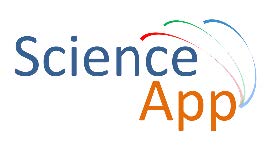| In Conjunction With ICCV 2019 |

|
In the last decades, there has been a tremendous increase in demand for assistive technologies useful to overcome functional limitations of individuals. Novel tools have been successfully commercialised bringing the Computer Vision and Robotics research from theory to applications and then to market.
The rapid progress in the development of integrated micro-mechatronic and computer vision has furtherly boosted this process.
The interest in this applied field is increasing due to the possibility to exploit advanced technologies coming from the results of traditional problems in Computer Vision (such as face analysis, tracking, detection and recognition, human behaviors analysis). However, many problems remain open especially as regards environment perception and interaction of these technological tools with people.
To address the open challenges, it is becoming increasingly common the use of deep learning approaches that have been exploited either to improve performance in the computer vision and robotics tasks, i.e. by inheriting the knowledge from the theoretic and methodological literature, or to make significant change to the assistive framework itself. In addition, new learning paradigms (e.g., Generative Adversarial Networks) are radically changing this strategic research sector.
The main scope of ACVR 2019 is then to bring together researchers from the diverse fields of engineering, computer science, social and bio-medical science who investigate in the context of Computer Vision and Robotics in order to discuss the current and next generation of Assistive Technologies.
The researchers will present their latest progress and discuss novel ideas in the field. Besides the technologies used, emphasis will be given to the precise problem definition, the available benchmark databases, the need of evaluation protocols and procedures in the context of Assistive Technologies.
Research papers are solicited in, but not limited to, the following areas topics:
- Augmentative and Alternative Communication
- Human - Robot Interaction
- Mobility Aids
- Rehabilitation Aids
- Home Healthcare
- Technology for Cognition
- Automatic Emotional Hearing and Understanding
- Activity Monitoring Systems
- Manipulation Aids
- Scene Understanding
- Life-logging
- Visual Attention and Visual Saliency
- Smart Environments
- Safety and Security
- Ambient Assistive Living
- Privacy preserving systems
- Robot assistants
- Quality of Life Technologies
- Navigation Systems
- Sensory Substitution
- Mobile and Wearable Systems
- Applications for the Visually Impaired
- Sign language recognition and applications for hearing impaired
- Applications for the Ageing Society
- Datasets and Evaluation Procedures
- Personalised Monitoring
- Video summarization
- Egocentric and First-Person Vision
- Applications to improve health and wellbeing of children and elderly
- Food Understanding
- Autonomous Driving
- Driver Assistance Systems
- Brain-Computer Interfaces (BCI) for Assistive Systems
- "Trust" and Assistive Systems
- Mobility in "Smart" cities
- Multi-modal Human-Centered Systems





